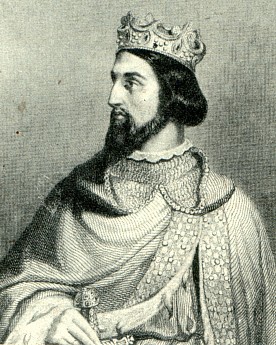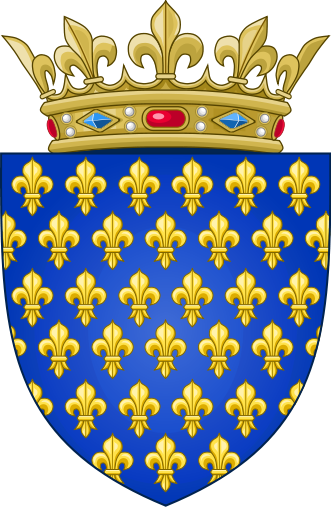<Back to Index>
- Historian William Hickling Prescott, 1796
- Composer Marianne von Martinez, 1744
- King of France Henry I, 1008
PAGE SPONSOR


Henry I (4 May 1008 – 4 August 1060) was King of France from 1031 to his death. The royal demesne of France reached its smallest size during his reign, and for this reason he is often seen as emblematic of the weakness of the early Capetians. This is not entirely agreed upon, however, as other historians regard him as a strong but realistic king, who was forced to conduct a policy mindful of the limitations of the French monarchy.
A member of the House of Capet, Henry was born in Reims, the son of King Robert II (972 – 1031) and Constance of Arles (986 – 1034). He was crowned King of France at the Cathedral in Reims on 14 May 1027, in the Capetian tradition, while his father still lived. He had little influence and power until he became sole ruler on his father's death.
The reign of Henry I, like those of his predecessors, was marked by territorial struggles. Initially, he joined his brother Robert, with the support of their mother, in a revolt against his father (1025). His mother, however, supported Robert as heir to the old king, on whose death Henry was left to deal with his rebel sibling. In 1032, he placated his brother by giving him the duchy of Burgundy which his father had given him in 1016.
In an early strategic move, Henry came to the rescue of his very young nephew - in - law, the newly appointed Duke William of Normandy (who would go on to become William the Conqueror), to suppress a revolt by William's vassals. In 1047, Henry secured the dukedom for William in their decisive victory over the vassals at the Battle of Val - ès - Dunes near Caen.
A few years later, when William married Matilda, the daughter of the count of Flanders, Henry feared William's potential power. In 1054, and again in 1057, Henry went to war to try to conquer Normandy from William, but on both occasions he was defeated. Despite his efforts, Henry I's twenty - nine year reign saw feudal power in France reach its pinnacle.
Henry had three meetings with Henry III, Holy Roman Emperor — all at Ivois. In early 1043, he met him to discuss the marriage of the emperor with Agnes of Poitou, the daughter of Henry's vassal. In October 1048, the two Henries met again, but the subject of this meeting eludes us. The final meeting took place in May 1056. It concerned disputes over Lorraine. The debate over the duchy became so heated that the king of France challenged his German counterpart to single combat. The emperor, however, was not so much a warrior and he fled in the night; despite this, Henry did not get Lorraine.
King Henry I died on 4 August 1060 in Vitry - en - Brie, France, and was interred in Saint Denis Basilica. He was succeeded by his son, Philip I of France, who was 7 at the time of his death; for six years Henry I's Queen, Anne of Kiev, ruled as regent.
He was also Duke of Burgundy from 1016 to 1032, when he abdicated the duchy to his brother Robert Capet.